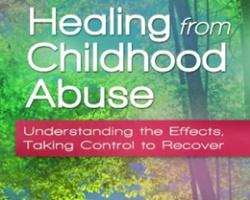John J. Lemoncelli, EdD
Praeger, 2012, 171 pp., $37, ABC-Clio.com
A third of females and one sixth of males are sexually abused by age 18, according to recent research. Some of these abused young people are in our groups. Because I am a pastoral counselor, I was eager to review this book written by a licensed psychologist (and professor at Marywood University in Scranton, Pennsylvania). Though secular in nature, the book provides a framework for recovery and hope. It is written to the survivor with the intention of giving him or her tools to understand the effects of abuse and strategies to recover.
Healing from Childhood Abuse is packed with helpful and insightful data; however, it is not a quick read. For example, the author uses the metaphor of a parasite to describe the psychological harm caused by abuse. A Christian reading the text might define the parasite as Satan. The author claims that by using this metaphor, survivors are able to understand the destruction to their lives and ultimately begin the healing process. He integrates other metaphors with case studies to which an abuse victim or helper most likely can relate.
The author outlines 14 stages that comprise the process of becoming a true survivor: admitting; accepting; taking an honest account of your strengths; altering your perception of yourself; splitting the emotions of sadness, guilt and shame; grieving what has been lost; recognizing there is a spiritual dimension to your personhood; recognizing you are not responsible for what happened; embracing your humanness; accepting that abuse has resulted in ego fragmentation; reestablishing trust in yourself and others; learning to forgive yourself; and establishing appropriate boundaries.
I questioned the chapter on forgiveness, which emphasizes forgiving ourselves rather than the abuser. The book is also academic in nature, so I wouldn’t recommend it for an adolescent. It would be an appropriate tool for a youth worker and parent to use as a guide to help counsel an adolescent who has admitted to or you is suspected of being abused.




